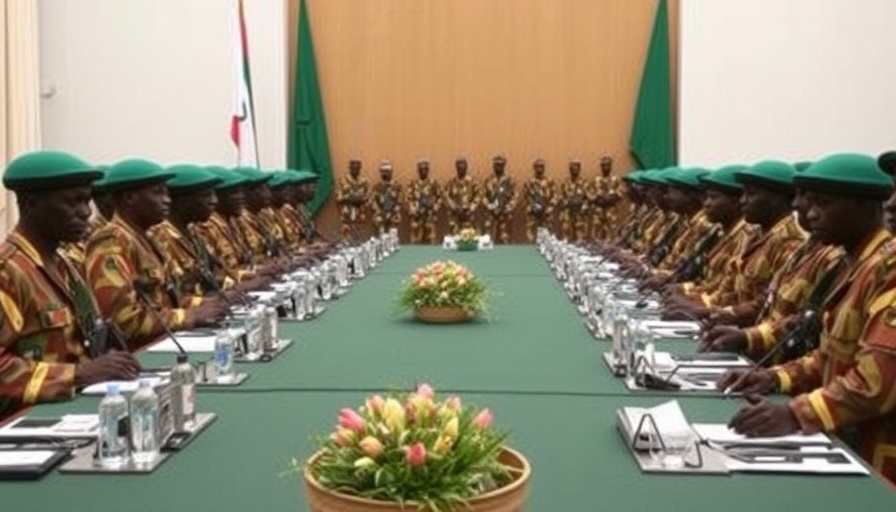
Ceasefire Agreement: A Fragile Step Towards Stability
The Democratic Republic of Congo has taken a cautious yet significant step towards peace, culminating in a ceasefire agreement signed recently with the M23 rebel group during talks mediated in Doha, Qatar. This agreement, built on prior discussions aimed at de-escalating a conflict that has been marked by violence and territorial disputes, lays the groundwork for a potential peace process to end a lengthy rebellion that has wreaked havoc in eastern Congo.
The ongoing conflict has led to severe humanitarian crises, displacing millions and creating an environment of fear and instability. As such, the newly established ceasefire monitoring body, comprising representatives from both parties and regional actors, is crucial for ensuring compliance with ceasefire terms. The presence of international observers, including the African Union and representatives from Qatar, aims to lend credibility and accountability to this endeavor.
International Involvement: Implications for Global Trade and Diplomacy
The geopolitical ramifications of this ceasefire agreement extend beyond mere local dynamics. Analysts suggest that sustained peace in eastern Congo could unlock significant economic potential within the region, especially concerning its vast mineral wealth, which has attracted global interest from countries and companies alike. However, maintaining this peace requires ongoing diplomatic engagement to prevent any resurgence of conflict fueled by external influences.
Recent reports highlight how the backing that M23 has received from Rwanda complicates peace discussions. The implications of these relationships underscore a broader narrative about Africa's economic interdependencies and the need for a cohesive approach to trade policies, particularly regarding African economies' involvement in global markets. Ensuring stability could, therefore, enhance Africa's positioning in the global economy.
The Future of Governance in Conflict Zones
The path forward for governance within the Democratic Republic of Congo hinges significantly on the success of this ceasefire agreement. Policymakers are faced with the challenge of not only monitoring compliance but also addressing the underlying issues that led to conflict in the first place. Integrating local governance mechanisms and incorporating community voices into the reconciliation process will be paramount in crafting a sustainable peace.
This step towards monitoring the ceasefire reflects a growing awareness among policymakers and thought leaders on the necessity of engaging local perspectives to inform governance frameworks that are responsive to the needs of the populace—especially in regions prone to conflicts.
Broadening Perspectives: How Global Stability Affects Local Economies
For business leaders and investors, understanding the dynamics of peace agreements in conflict-affected regions like eastern Congo is critical. The interconnectedness of global economies means that peace or unrest in one area can reverberate throughout international financial markets. In this instance, the success of the ceasefire agreement could potentially stabilize mineral markets that have fluctuated due to conflict-related uncertainties, presenting new investment opportunities.
Additionally, this peace initiative serves as a reminder of how governance and geopolitical relationships influence trade and economic stability at local levels. As Africa continues to assert its role on the global stage, these developments in Congo provide a lens through which broader economic and political trends can be understood.
Call to Action: Engage with African Developments
To truly grasp the complexities of Africa's geopolitical landscape and its implications for global trade, continued engagement with ongoing developments is essential. Businesses and policymakers alike should stay informed about transitions in conflict zones, as these will likely shape the future economic landscape of the continent. By fostering dialogue and sharing insights, stakeholders can contribute to realizing a more peaceful and prosperous Africa.
 Add Row
Add Row  Add
Add 


Write A Comment